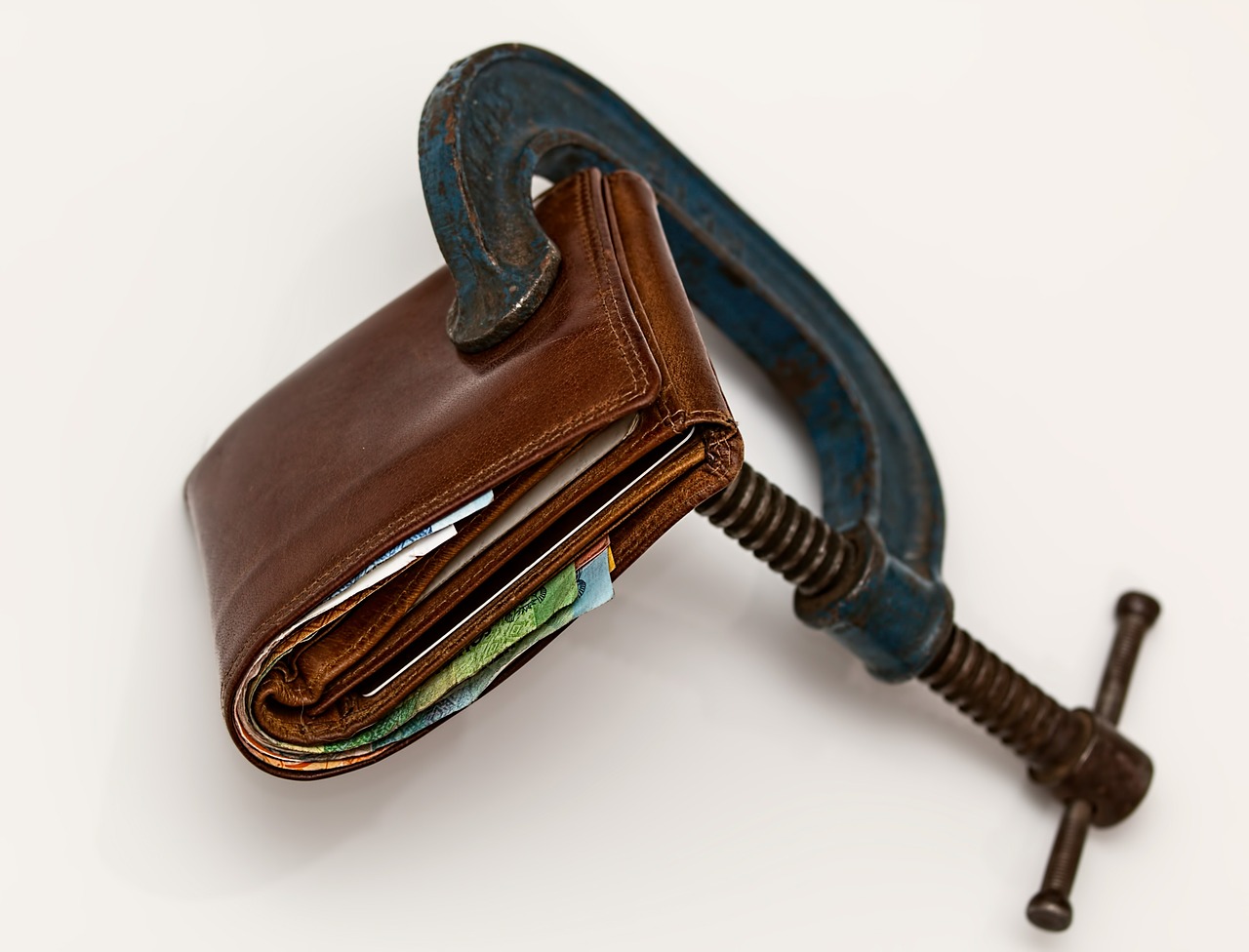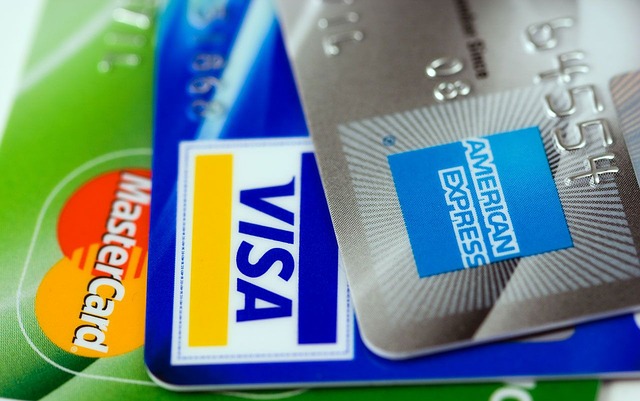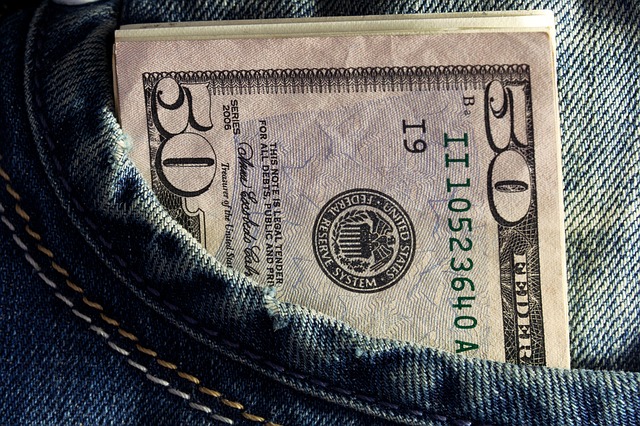It is not necessary to have large fortunes to have the need to develop the family budget. Many families think that this budget is not necessary because they only have a modest source of income and their monthly expenses are typical of any average family, like paying rent, utility bills, some escapades to the movies, school for children, or vehicle expenses. Regardless of the economic slack your family may have, you need to prepare the family budget.
Just as it happens in a company, if you do not adequately handle the household economy, you’ll be committing serious mistakes with dire consequences for your pockets (and your health), and you’ll be repeating again and again the infamous phrase: “I can’t make ends meet“.
To avoid such awkward moments, you must bring order to your domestic economy and the first practical step to achieve this is to develop a simple family budget. The budget will bring the bills on time and help you avoid wasting money, allows monitoring of costs to reduce them, prioritize or delete them as far as possible; In addition, if you meet the budget by knowing the economic situation of your family to date, you will be able to make better forecasts, inviting the savings and to protect yourself against unforeseen events such as illness, damage to housing, vehicle breakdowns, etc.
A basic budget has two columns: the INCOME column and the EXPENSES column. In the income column you’ll write any money entries that sustain your family: wages, overtime, financial aid and generally any other source of income your family has during the month.
In the expenses column, you will record all monthly expenses classifying them into three categories:
- Compulsory expenditure (which you can not stop paying and they are constant); for example, rent or home mortgage, a bank loan that you have requested, quotas for Social Security, or payment of your community.
- Necessary expenses (you can not stop paying them, but you can reduce the amount of what you pay); Typical examples of this category correspond to electricity bills, water, telephone, expenses for food, clothing, transportation, etc. You see, you can not help incurring such expenses, but you can take steps to reduce the amount you pay.
- Occasional expenses that can be totally eliminated if necessary, for example leisure and recreation expenses (food and beverages away from home, horseback weekend), non essential consumer goods, electronic equipment, etc.
Once you have registered with honesty all income and all expenses, summarize both columns and get the difference between the two. If the column total expenditure is greater than total income, then I don’t need to tell you (because you’ll already have noticed) that you are in serious economic problems and should start as soon as possible to eliminate incidental expenses and reduce the amount of necessary expenses (unless you’re able to earn more income). If, however, the income column is greater than expenses, you must interpret this difference as your ability to save; if so, mark the aim of saving at least 10% of your monthly income and commit to it.
Remember that the goal is to make the family budget income to cover your family living costs; so when you establish the budget, involve the family for a global commitment to savings and avoiding wastage. The budget will help you identify and eliminate unnecessary costs, reduce unnecessary expenses and reduce bills for necessary expenses.
To have more slack and for your budget to be your best financial partner, avoid as far as possible the use of credit cards, and beware of getting into long-term debt or high interest rates credits as possible (especially consumer credits or loans) and most importantly, never ever forget the golden rule: do not spend beyond your means.
He who has never been afraid of losing money can cast the first stone?. It’s obvious that nobody likes losing money; we care for it as if it were our most precious asset, but we should understand on how that fear can affect our attitude.
The fear of losing money is inevitable (for both poor and rich folks); It is not a fear of cowards, but a necessary fear. The bottom line is not about fear itself, what’s really interesting is how that fear affects us emotionally; in other words, how we manage our money in spite of that fear. On occasions, people fear so much the possibility of losing money, they won’t take any kind of risks, instead they will play it safe and end up losing.
How to manage the perception of fear, the sensation of lost and the experience of failure?
One of the best tricks to overcome your fear of losing, is redefining the concept of failure. What is the meaning of failure for you? You can see it as a tragedy or as a learning experience; You can understand it as a sign to let your plans succeed, or you can view it as an inspiration to go even beyond your desires. Possibly you see failure as a punishment for your ambition, or perhaps you prefer to understand it as a new opportunity; You can also see it as a defeat, while others see it as a sign to start over but more experienced.
Some people get weakened in face of failure, while others grow stronger. How and why does this happen? Basically, the difference won’t be found on objective matters, such as academic degrees, where they live, their age, or their wealth. The difference between one way of seeing the consequences of failure and the other lays on the attitude, and your attitude depends on what you believe in.
Concretely speaking, the fear of losing money is rooted in the fear of failure, and one of the practical ways recommended to overcome the fear of losing money is to assume that no one will take it out of your hands (unless you let them); money also won’t disappear by itself (unless you throw it out the window and the wind carries it away). In any case, you are the great money manager and you know there is no success without taking risks and learning. The more you acquire skills to manage your money, the less aversion to failure you’ll have, and therefore you’ll have less concerns at the possibility of losing money. Remember that no one has become rich without losing some money.
At this point it is well worth extracting a powerful phrase from the book “Rich Dad Poor Dad” whose author, Robert Kiyosaki, says bluntly that the losers avoid failure, while failure turns losers into winners. So you shouldn’t panic in the face of failure because your natural response to that fear will be to do nothing, and you shouldn’t stop playing in fear of losing. Also don’t get compliant for playing it safe because, even when winning, you would not have learned much. Do not forget that you have the sufficient capacity to win, and if you end up losing money, do not worry because you will always have the tools and skills to find new opportunities to recover and recapitalize.
Our final recommendation: don’t be afraid of losing money and never think in terms of poverty, because that is always followed by a large army of burdens, fears and apprehensions.
If you do not have credit history, or if you ever have been denied credit, it’s time you start thinking about a secured credit card. As you know, the way you use credit cards widely impacts your financial history; so to make a good start on that history, or to restore a situation of a somewhat weak credit, a good option is to use this type of financial instrument.
In those cards, credit is secured by a deposit made in a saving account specially designed for this purpose. Thus, the credit limit will depend on the amount of that deposit.
Lots of people confuse secured credit cards with prepaid debit cards (or just prepaid cards). These work just as a normal debit card, with the proviso that the available funds have been previously pre-loaded. This category includes discount cards and the ever popular gift card.
With the intention of helping to create responsible spending habits and to contribute with security by taking away the necessity of paying with cash, many parents choose to give prepaid cards to their children; but nevertheless, and contrary to what happens with secured credit cards, the emission of the prepaid card in not informed to the credit agency, and thus the way it’s used won’t have any effect on the construction and consolidation of their personal credit history.
Although in both cases funds are guaranteed, it’s preferable to operate with the secured credit cards, since besides establishing and managing your own credit limit, you’ll be able to build a solid financial history, then within two months, the bank entities could provide the opportunity to apply for a new credit card without the down payment.
When you’re going to invest, the first questions you need to ask yourself is: Is it a worthy investment? Is it advisable to take the risk? One of the most important evaluations to differentiate one investment alternative from another is the combination of risk that you will assume, and the benefits you expect to get (profitability).
Generally, rikier investment should produce higher returns. If it were not so, any investment alternative that report the same potential benefits to another with a lower risk would cease to be attractive.
The risk is linked to the uncertainty of the benefits you actually get by investing. You can earn more than what you expect, less than desired, or you can even lose all the money you invested. There is no way to avoid the risk because profitability will never be assured.
Each alternative for investment is unique because it combines risk with profitability. Since not all alternatives have the same risk or the same return, there are two “laws” that common sense dictates and you should consider when choosing:
- Between two alternatives with EQUAL RISK, you must choose the MOST PROFITABLE ONE.
- Between two alternatives with equal PROFITABILITY, you must choose the one with the LOWEST RISK.
As you can see, you cannot separate the risk that you will assume from the profitability you expect to get, and although an investment with greater risk should produce higher returns, be careful when deciding because there is no guarantee that that will happen. To accept a higher risk does not always lead to greater profitability.
Even though it seems strange, a good salary doesn’t guarantee financial success; also having a low salary does not mean failure. Financial success depends on how you manage your personal finances to improve your quality of life and achieve your goals, regardless of how much money you earn or how big is your spending budget.
Managing your personal finances is a process that begins with knowing your current financial situation; the process continues with the establishment and prioritizing of your goals, so that you can then develop certain strategies that will allow you to get going from your current situation to achieving your goals.
As you see, this is a comprehensive planning process. It is your quality of life that you’ll get to improve and for that you can’t just be focused on a particular interest, neglecting or leaving aside others. Proper personal financial planning will allow you to make smart decisions, including the purchase of your first home, emergency fund management, education for your children, or even how to secure your quality of life after retirement.
It’s not the one who earns the most money that lives better. The one who lives better is the one who is able to get the best possible quality of life, and personal financial planning acts like the map that marks the path to achieve your dreams, realise your ideals and reach your goals. Personal financial planning thus becomes an essential piece of your route; it helps you to achieve your dreams, prioritizes your goals, alerts you about the obstacles which you may find along the way, prevents you from making terrible mistakes, prepares you to face contingencies and unforeseen events and, last but not least, offers first class information so you can make the best decisions.
As you may have noticed, your financial success depends less on your income, but rather on the clarity of your goals and the route you have designed to manage your personal finances.
On many occasions you’ve probably felt like money controls your life. Perhaps you wanted to go for the weekend to the countryside or to the beach, but you could not because you had no money; possibly you needed to pay the electricity bill, but you had to leave it for the next month because you just barely had the money needed for groceries; your vehicle broke down, but you could not fix it because you had to deal with other priorities; In addition, your credit card was about to burst and you didn’t even pay the minimum quota in hopes that the bank would not notice that default in payment.
Surely, these miserable experiences made you feel bad; your mood and your self-esteem were markedly reduced, you got locked in your money problems, you lost your friends, and your thoughts just invited you to believe that it was all “because of money.”
Money is not responsible for our mood or our daily practices. Fortunately, we alone are responsible for our life and our future. A healthy way to change our perception of money is trying to answer these questions: How do I feel about money? What are my beliefs and expectations about money? Am I able to control my expenses and my savings? Is money the one that is controlling my life, or is it me who should control the money?
Your beliefs, perceptions and expectations affect your emotions and determine the actions you can take to sort your finances and expand your financial slack. I give you an example: as long as you don’t believe that you can be successful in life, you will think that there is no need to succeed in finances, so neither you will be convinced about the need to raise your income or moderate your expenses and, consequently, you won’t have reason to change your patterns of consumption, savings habits or your ideas on investment.
Another example: if you believe you’ll never have enough money to do what you please and live as you dreamed, you will unconsciously deny the control you have over your future (which nobody else but you has) and therefore you will not have aspirations, you won’t feel the need to take on challenges and design your financial road map; you’ll just feel resigned.
The concepts you have about yourself and money significantly influence your attitude and the actions you undertake to achieve your goals. Remember that the only person who controls what you think and feel is you. If you just repeat the phrase: “I have no money” I assure you that you will not be doing yourself any favors; On the contrary, you are reinforcing your negativity and slowly you will drag yourself down emotionally. Similarly, if your favorite phrase is: “my salary is not enough at all”, you will be reinforcing the idea that you are not responsible for what happens to you, but that the fault of your ills belongs to your salary, the employer who pays your salary, the government, or the bank.
Always keep in mind that your personal or familiar experiences with money have an influence on your beliefs and the expressions you use on a regular basis when you refer to it; also, those beliefs influence your values, your attitude and your spending, savings and investment habits; in other words, they affect how you manage your money.
Financial ignorance or poor money management can also cause you mental exhaustion, stress, low self-esteem, and even a decrease in the affection and the quality of our relationships with family and friends. Stay focused on your projects and improve your relationship with money; remember that this relationship affects you personally but also affects your relationship with other people.
Lastly, learn to control your feelings about money. Get rid of negative thoughts like “I’ll be poor all my life”, “I don’t know how to earn more money” or “I can’t do more than what I’m already doing.” Do not forget that you’re the only person able to control your future.
So now you know, control your feelings so that money does not control you.
Most people manage their budget using mental accounting. It is easy to imagine the fate of our salary or what we will do with that money, even before we receive it. But on payday we come back to realize (again and again) that every penny counts and that we have very little money left over to add any additional expenses.
Maybe you’re thinking that you need to increase your monthly income, getting an additional second salary or working more overtime, but it often goes unnoticed that the way you maximize the usage of your income is as important as the amount of money you receive.
Three smart ways to maximize the performance of your salary are:
- Benefit from tax incentives that you could take advantage from.
- Ensure good protection for you and your family to avoid costly bills in cases not covered by public health care.
- Preserve your money by reducing unnecessary expenses. Try reducing your grocery bill and spend less on fuel; reduce your wasteful spending, discard habits of onerous consumption and rethink your social preferences.
In many cases, we prefer to use money for leisure and recreation rather than be earmarked for basic payments, acquiring a good health insurance or reducing mortgage debt. In other cases we acquire a new car or a house in the beachfront, just for the desire to look wealthier and not by necessity. This seems to be the reason why in some societies, credit growth for the purchase of consumer goods has accelerated in recent years, and it is also starting a boost on mortgage lending.
We live in an atmosphere of constant anxiety about money, and that anxiety can affect our personal and family life. We always want to win more to buy more, and as you may have noticed, in many cases the solution to our lack of freedom in the family budget can’t be found by working extra hours or finding a second job. In most cases, it all works out with a little more financial discipline to help you maximize the usefulness and enjoyment of the money you earn.
Try to achieve an adequate financial balance; When you succeed, you’ll notice that money has ceased to overpower you.
If we talk about money is there anything that rich people know that most of us do not? Perhaps in some occasion you’ve wondered what is the key to keep control over money, maximize it, and begin to think and live like rich people do; Well, let’s unravel the mystery; I will begin by telling you that the difference between a rich person and a poor one, is on the manner in which they mix knowledge, attitude and action.
If you’ve always dreamed of having bank accounts of several digits, but you do not make a move because you do not know what to do or you are afraid of where to start, you’ll never make it. To achieve this, heed these 4 tips from people who have managed to overcome the barrier of a million dollars and, most importantly, they remain happy and their wealth growing to be enjoyed by their children and grandchildren.
- Find alternative strategies to protect your money: One of the reasons for the financial success that the rich of today enjoy is that they learned to protect their assets, combining financial products of high returns, while avoiding paying heavy taxes (we are not talking about tax evasion, but tax incentives conformed to the law). Think of life insurance and annuity products.
- Understand the importance of diversifying: Do not put all your eggs in one basket, it is a wise recommendation that we hear from our grandmothers. This popular adage also works for the rich. Wealthy people know the cyclical nature of investments and therefore do not concentrate on a single place to create wealth, but diversify their investments in order to ensure a steady flow of money into their coffers.
- Save money wisely: Financial intelligence is not just about finding new ways to grow money, but also to preserve it by holding off the personal lifestyle. Lack of control in spending is one of the main reasons why some wealthy people, at a given moment of their lives, have ended up losing everything and in absolute poverty (as some athletes and others in the showbiz). Never go into debt just to maintain a lifestyle that is above your means. Do not waste what you have, let alone the money that is not yours.
- Design your action plan and move: Did you ever think of what you want your money to do for you? Getting money is not the ultimate goal of your life; Money is simply a tool to achieve your most important personal goals. Progress towards these goals is more a matter of action than of thought. Do not waste your life imagining a beautiful future with all your personal goals achieved. If you want to be financially free and feel like the protagonist of the future that you dreamed for you and your family, stand up and walk until you get it. Remember that mere desire will not lead you anywhere. Move, find that future, do not wait until tomorrow to start building your own path to wealth.
In short, realize that the most important thing is to invest in your own future. Search precise knowledge, assume the necessary attitude, get going and, even in difficult times, keep on sowing the financial seeds that sooner rather than later will flourish in your life.
We all have a record of our financial life that often goes unnoticed by each of us; and its score will be better or worse depending on the loans we have obtained, our financial performance and the payment history we have built. Based on this information, banks and other financial institutions assess our profile and make decisions on the loans we request to purchase our home or our car; they also take this into account to extend credit limits for consumption.
Obviously we want to have a good credit reputation, and we must avoid some mistakes that will derail this claim.
- Delaying the payment of your bills: This is one of the highest impact factors when assessing your history. Paying late your mortgage, credit cards or car loans (for example) are big mistakes that significantly penalize your personal credit score.
- Skipping payments: Your financial reputation will crumble if you fail to pay off the loans you were granted, credit cards, or even invoices for goods and services (telephone, Internet, electricity, etc.) It goes without saying that it would be catastrophic to your history if you were to file for bankruptcy or suspension of payments, or if you found yourself under a garnishment or foreclosure.
- Overspending with your credit card: Most people believe that if they do not exceed the limit of the credit card or religiously pay the monthly balance (even if it is just the minimum) they already have secured the sky in the financial universe. Is not always that way. Credit risk analysis and policies may vary, but for purposes of your history and reputation, experts say it is best to prevent the card balance from exceeding 30% of your credit limit.
- Not getting into debts: Although it seems like a contradiction, this is one way to damage your credit score. If you have never asked for a loan before how do you tell if you are responsible and trustworthy? It is not the same for a 21 years old person to apply for a loan for the first time than it is for another of 35 or 40 years old. If you’ve avoided during the course of your life to go into debt and have always had an aversion to the banks, then when you apply for a loan you need you will not have great things to show. Remember that the greater the age of your credit score, the better you can prove your financial profile.
- Not using your credit cards: If you are of the people that breaks credit cards just as you receive them, hide them not to use them, or if you just settle for simply using them occasionally to keep them active, then believe me you’re not doing yourself any favor to your financial reputation; that way it will be very difficult for the Bank to increase your credit limit, or worse, chances are you won’t get your card expiration date renewed; therefore, your financial history will not be the brightest, and it may even lose some points.
Avoid ruining your financial history, because it is the only way to show the world that you are trustworthy in money matters. Important: If you have economic problems to make ends meet, do not throw overboard what took you years to build, assume your situation and talk to your creditors; perhaps it may cost you some score points, but eventually you will see your sincerity and responsibility rewarded.
It is no secret that compulsive shopping and the obsession for purchasing the latest models of technological fads are fast tracks to the financial collapse, but there are certain habits that appear to be harmless and can also cause great damage to our personal economy, and even some financial havoc with the passage of time. Three apparently innocent but potentially harmful habits are:
1 – Making many small purchases: Common sense tells us that no one will stop buying coffee or a small sweet candy at mid-afternoon, thinking that that decision could be driving him into bankruptcy; but we probably have not realized the tremendous economic impact of these innocent whims when they are recurrent and become an habit. If you’re not convinced, simply add up all the “little” expenses you did for one month, and you’ll see it. The morning coffee, dessert in the afternoon, the small water bottle, the daily newspaper with sports news, the package of candy, the weekly magazine to find out the love life of celebrities, goodies that you take your home and many other examples like that. The expenses on all these consumptions should invite you to prevent these recurring consumption habits.
2 – Being overly generous: Generosity is a personality trait that moves you to offer and share your wealth with others. It’s okay to be generous, even more with those who really need your understanding and help, but you must be careful because your generosity may be affecting your pocket amazingly. Calculate the total amount of tips you leave in the barber shop, in restaurants, in taxis; sum the donations you regularly give to your church, or the times you’re asked for a contribution for certain charities. Complete calculation with coins you offer to street musicians, or to people who ask for alms. You can continue adding what you spend in sponsoring social projects or protecting certain endangered animal species; include also the money you gave “borrowed” to acquaintances and co-workers when they asked for help to solve a need. All those little expenses (and many others) affect your economy. We do not ask you to stop being generous; we just warn you and invite you to calculate the economic impact of your generosity and benevolence.
3 – Using your credit card for everything: It is true that a credit card avoids the need to go out with a lot of cash (with the benefits that entails), not to mention many other benefits associated with its use; but it is very dangerous to get into the habit of paying all your purchases by credit card, because by doing so you can lose sight of the economic and emotional impact associated with spending, and this will lead you to spending more than you need or buying more than what you should. Keep in mind that many establishments conditions for accepting credit cards is that you have to make purchases for a minimum amount, so you may feel the need to buy even beyond your means. Do not forget that every time you use your credit card, you are acquiring a debt.
If you really want to start making good financial decisions, take care of these three habits and avoid making excuses that could tie you to them; that way you’d be fooling yourself and you would not be acting wisely to protect your net worth nor your family’s.












MONEY RACE STUDIOS 2020 - ALL RIGHTS RESERVED - LEGAL NOTICE - PRIVACY POLICY